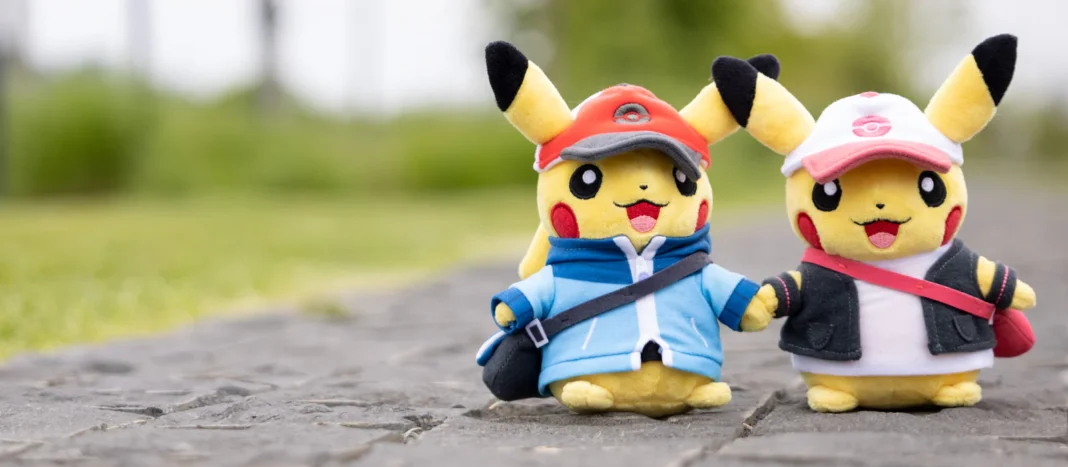Plush toys are a childhood staple, often seen as simple comfort items for kids. However, beyond their softness and cuddly appearance, pikachu plush toys can play an essential role in developing your child’s cognitive abilities. Through interactive play, children are not only entertained but also engage in activities that stimulate their minds and promote growth. In this blog, we’ll explore how plush toys can positively impact your child’s cognitive skills and contribute to their learning journey.
1. Building Problem-Solving Skills
Problem-solving is an essential cognitive skill that helps children navigate the world around them. Plush toys can encourage this by prompting kids to think critically and come up with solutions during imaginative play. For example, a child may create a scenario where their plush toys need to solve a mystery or overcome an obstacle. This type of pretend play sparks creativity and helps children improve their decision-making and problem-solving skills as they figure out solutions for their toys’ imaginary dilemmas.
2. Enhancing Language Development
Plush toys also provide an opportunity for children to develop their language skills. As children interact with their plush toys, they often create dialogues, scenarios, and stories, which help expand their vocabulary and improve their speech. When children role-play with their soft 8-inch Pikachu plush toy, they may incorporate new words, phrases, or even entire sentences, practicing sentence structure and language. Encouraging children to speak with their toys promotes language fluency and communication skills, laying the foundation for effective communication as they grow older.
3. Improving Memory and Recall
When kids play with plush toys, they often remember specific details about their toys, such as names, traits, or backstories. For example, a child may pretend their pikachu plush goes on adventures, and over time, they’ll remember and build upon these stories. This kind of repetitive play helps children improve their memory and recall. The more a child interacts with their plush toy, the better they become at remembering details and recalling them in future play sessions. This repetitive play strengthens their memory retention and improves their ability to remember information in other areas of life.
4. Boosting Fine Motor Skills
While plush toys are known for their emotional and imaginative benefits, they also offer a chance for children to develop their fine motor skills. Many plush toys come with added accessories, such as buttons, zippers, or clothing, that encourage children to manipulate them. Tasks like dressing their plush toys or taking care of them help children develop hand-eye coordination and improve their dexterity. These simple actions might seem small, but they contribute significantly to a child’s fine motor development and their ability to perform more complex tasks as they grow.
5. Understanding Social Roles and Empathy
Cognitive development doesn’t just involve academic skills—it also includes emotional and social understanding. Plush toys offer a safe environment for children to practice social interactions and build empathy. When children pretend to be parents caring for their plush toys or share a toy with a sibling, they learn the importance of social roles and sharing. This type of play helps children understand emotions, develop empathy, and recognize the needs of others. These experiences contribute to emotional intelligence, which is an important aspect of cognitive growth.
6. Encouraging Structured Playtime
Structured playtime is essential for children’s cognitive development. Plush toys like pikachu plush toys are versatile tools that can be incorporated into both guided and independent play. For instance, parents can use plush toys in structured activities like storytime, where the toys become characters in a tale, helping children develop listening skills, sequencing abilities, and comprehension. Alternatively, children can use plush toys in free play, which allows them to explore their imagination and practice independent thinking. Both types of play contribute to cognitive development, providing a well-rounded approach to learning.
7. Developing Spatial Awareness
Through interaction with plush toys, children learn about space and distance, which are crucial components of spatial awareness. Whether it’s arranging their plush toys in a specific pattern, organizing them by size, or creating a scene with different objects and characters, children are developing an understanding of how things fit together in a given space. This type of play improves spatial reasoning, which is important for activities like drawing, building, and even basic math.
Conclusion
Plush toys like soft 8-inch Pikachu plush toys are far more than just soft companions for children; they are valuable tools for enhancing cognitive skills. So, the next time you choose a plush toy for a child, remember that it’s not just about comfort—it’s about contributing to their cognitive development in meaningful ways.



